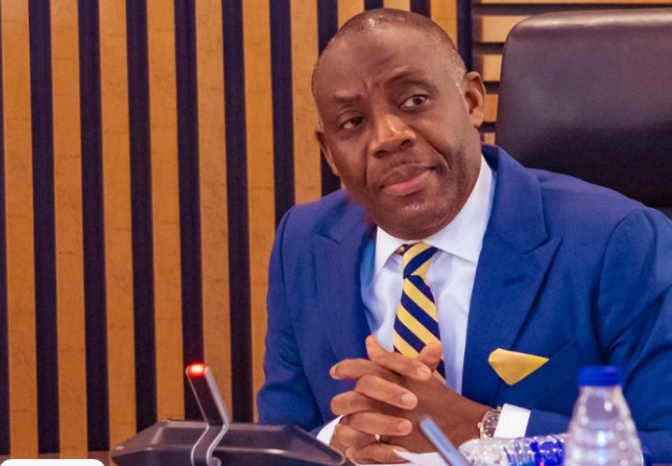698
By Oscar Okhifo
Education Minister, Dr. Tunji Alausa, has bowed to pressure and admitted that the 2009 agreement between the Federal Government and the Academic Staff Union of Universities (ASUU) remains valid, days after controversially dismissing the existence of any binding pact, a denial that sparked outrage from lecturers and stakeholders.
Earlier in the week, Alausa sparked controversy after saying ASUU was merely “parading a draft” , referring to the 2021 Nimi Briggs draft agreement and insisting that no formal deal had been signed with the union.
His comments provoked outrage from ASUU and stakeholders in the education sector, who accused the government of deliberate misinformation.
In a statement issued by the Ministry of Education on Friday, however, the government clarified that the 2009 agreement is indeed the last formally executed agreement with ASUU. The ministry further explained that while the 2021 Nimi Briggs draft was produced after a renegotiation process initiated in 2017, it was never formally signed and should therefore be regarded only as a framework for ongoing discussions, not a binding contract.
The clarification comes amid growing anger within ASUU, which has repeatedly accused successive governments of failing to honor the 2009 agreement, especially on issues of university revitalization, improved lecturers’ welfare, and better working conditions.
Union leaders described the Minister’s earlier remarks as “provocative” and warned that such inconsistency from government could push lecturers back into strike.
Already, ASUU branches across the country have been debating the possibility of fresh industrial action, with members insisting that government’s posture shows it cannot be trusted.
Some lecturers privately suggested that ASUU had been “scammed” into believing progress was being made, only for the Minister to first deny, and later admit, the validity of the 2009 pact.
Beyond the dispute with ASUU, many Nigerians are questioning Dr. Alausa’s suitability for the role, pointing to a pattern of frequent gaffes and hasty statements. Critics recall that when the Joint Admissions and Matriculation Board (JAMB) released examination results earlier this year that attracted widespread condemnation, the Minister rushed to defend the board. He blamed the massive failure on the “tightening of nooses” against malpractice, “special centres,” and what he described as students’ declining commitment to study. But when JAMB later admitted it had made mistakes and adjusted some scores and even gave opportunities to many to rewrite the examination, the medical Doctor turned Minister of Education neither apologized to the students nor retracted his earlier position, leaving many to accuse him of insensitivity.
Observers say his latest misstep over ASUU fits a worrying pattern of speaking authoritatively without getting the facts right. For a man trained as a medical doctor but appointed by President Bola Tinubu to manage Nigeria’s troubled education sector, critics argue that Alausa has so far displayed more blunders than solutions.
Nigerians who thought the era of “incompetence” ended with former Education Minister Adamu Adamu now fear they are witnessing a continuation under Alausa.
“If talking before thinking is not incompetence, then what else is?” one education analyst remarked.
Meanwhile, the Ministry insisted that under President Tinubu’s Renewed Hope Agenda, government remains committed to addressing the long-running dispute with ASUU in a sustainable manner, with the aim of keeping universities open for teaching and research.
“The public is urged to disregard any misinterpretation of the Minister’s earlier remarks,” the statement stressed.



